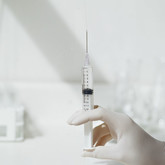Biosimilars/Research
|
Posted 25/06/2021
How to increase the uptake of biosimilars is an important issue both in Europe and across the world. Europe, via its centralized European Medicines Agency (EMA), has been very successful in approving biosimilars. There are currently 73 biosimilars approved in Europe, almost all of which were marketed immediately after approval [1]. Despite the success in approving and marketing biosimilars, the uptake of biosimilars does vary between different countries in Europe. To encourage the use of biosimilars, targets and incentives have been used across Europe [2]. However, pricing can also play an important role and was investigated by Josep Maria Guiu Segura and Antoni Gilabert Perramon [3].






















